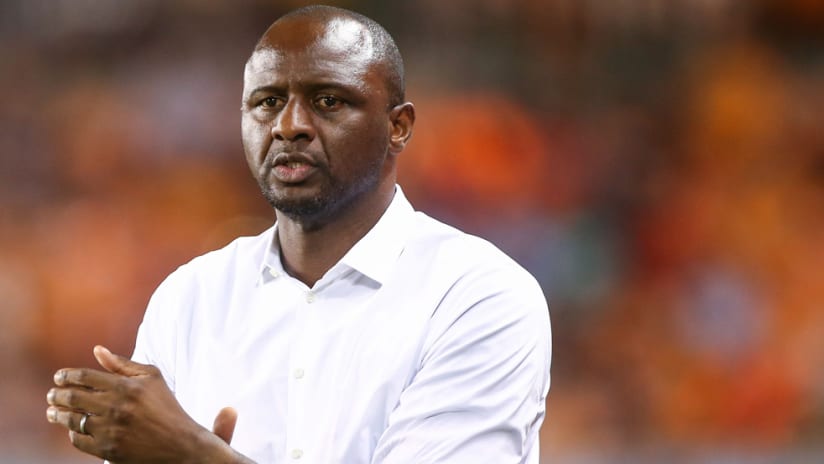It always looks manageable on paper.
Given the resources and talent at the disposal of MLS and Liga MX teams in the CONCACAF Champions League, getting four teams from each league into the knockout round seems like it would be a cinch.
But it never quite works out that way.
In the three tournaments since the format switched to three-team groups, neither of North America’s top two leagues have been able to send the maximum number of teams to the last eight of the tournament.
Call it bad luck, call it poor squad management, or maybe it's just an underestimation of a group of motivated, well-supported and technically capable teams who happen to have a smaller profile. But the fact is that each year, at least a couple of teams from Central America edge out their rivals from MLS and Liga MX.
When you give a casual glance to the group-stage draw for the 2015-16 tournament, it is hard to see where an MLS team might falter. For the first time since group play was instituted for the 2008-09 tournament, not one MLS team in the draw faces the dreaded possibility of a trip to Costa Rica – whose clubs delivered two teams to the 2014-15 semifinals.
Yes, the Vancouver Whitecaps and Seattle Sounders make up two-thirds of the “Group of Death," along with Honduran outfit Olimpia – who, coincidentally enough, knocked out the Portland Timbers last time around and will be on the hunt for two more Cascadia scalps. Even then, the probabilities still favor an MLS team getting out of Group F.
Outside of arguably the hardest group the CCL has ever seen, the draw looks to be mostly favorable for MLS teams. In addition to avoiding the Ticos, the three remaining MLS sides all skipped out on the region's next-toughest away trip, Honduras. The LA Galaxy (Group D) and D.C. United (Group H) both drew Caribbean opposition, against whom MLS teams have gone an unbeaten 13-0-3 in CCL group play.
Though 30-time Guatemalan champs Comunicaciones and Panamanians Arabe Unido – always a thorn in the side of MLS teams – will give the Galaxy and United tougher tests, the two US teams should still be considered favorites.
Real Salt Lake (Group G), meanwhile, face another Guatemalan power in Municipal, but also face El Salvador's Santa Tecla, who have never played in this competition before.
It never seems to work out quite as smoothly as expected, but if four MLS teams can make it to the knockout round for the first time next spring, it will be a real sign of progress for the league both in terms of results and in terms of development. The highest number of MLS clubs ever to make it to the quarterfinals in the seven previous editions of the tournament was three (in 2011-12, 2012-13 and 2013-14).
What might make things difficult this year is that all five teams will almost surely be involved in an MLS Cup Playoffs push that will likely require production from the talent on the back end of their respective rosters, an area where MLS teams have lagged behind their Liga MX counterparts.
In searching for the path to CCL success, MLSsoccer.com's Armchair Analyst, Matt Doyle, put it best in breaking down Montreal’s collapse in the 2014-15 CCL final, from which we are just one month removed: “MLS teams have to continue to invest in their academies and reserve teams, building both a squad and an adaptable style of play from within.”
The five MLS teams involved in this year’s tournament have been among the better teams in the league when it comes to investing in and bringing along academy products, as well as making full use of the league’s emerging relationship with the USL. Four of the five MLS teams in the 2015-16 CCL now operate their own USL affiliates and the one that doesn’t, D.C. United, has made heavy use of their affiliation with the Richmond Kickers.
The CCL is exactly where USL ties will come in handy. A player who has logged 20-plus games for LA Galaxy II, for example, in a professional setting like USL will be far more seasoned, fit and ultimately effective than the same player who got just a handful of appearances for the reserves and maybe a few cameos with the MLS first team. MLS coaches will simply have more reliable options in those high-strung, physical CCL group-stage matches that come with plenty of adversity and long-distance travel.
The group stage will surely throw up a few surprises and a few funny bounces of the ball on those sometimes-questionable fields found throughout CONCACAF. But MLS teams are becoming increasingly more capable of dealing with the factors that are within their control, and that is reason for optimism.







